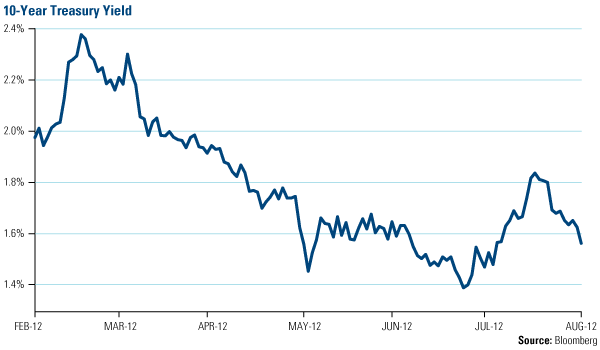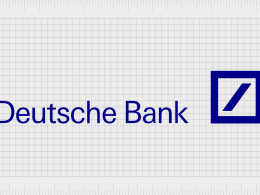The Economy and Bond Market Radar (September 2, 2012)
Treasury yields built on last week’s momentum and continued to fall this week as the much anticipated Jackson Hole speech from Fed Chairman Ben Bernanke did not disappoint. Chairman Bernanke reiterated many of the ideas communicated after the August 1 Federal Open Market Committee (FOMC) meeting, essentially saying that additional quantitative easing remains a viable policy tool and the Fed would implement if they deemed it necessary. The ECB added to the positive tone this week by reiterating its preference for buying European sovereign bonds. Also on Friday it was announced that the ECB was moving forward with a proposal that would allow it day-to-day oversight of large banks and the ability to grant bank licenses. This potentially paves the way for direct bank bailouts if needed, avoiding many of the political hurdles that have plagued the on-going financial crisis.

Strengths
- Back to school sales started off strong with July as personal spending rose 0.4 percent, which was the strongest performance since February. That trend continued in August as many retailers reported stronger than expected same-store-sales results across a broad cross section of formats.
- Pending home sales rose 2.4 percent in July, which was the best showing since April 2010.
- The S&P/Case-Shiller 20-city home price index rose 0.9 percent (seasonally adjusted) in June. This indicator has now increased for five months in a row.
Weaknesses
- Consumer confidence hit a nine-month low in August and fell far short of analyst expectations.
- Germany’s Ifo business sentiment index fell in August for the fourth straight month as the majority of firms surveyed had negative outlooks for the first time in three years.
- Retail sales in Japan fell 0.8 percent in July on a year-over-year basis; this was the worst showing since November 2011.
Opportunity
- Both the Fed and ECB appear ready to implement some form of quantitative easing in the very near future.
- With further weak economic data out of China, odds of additional easing measures continue to move higher.
- Interest rates are likely to remain very low for the foreseeable future.
Threat
- Europe remains a wildcard with the markets shifting focus on a weekly basis.
- China also remains somewhat of a wildcard as the economy has slowed and officials appear in no hurry to take decisive action.













